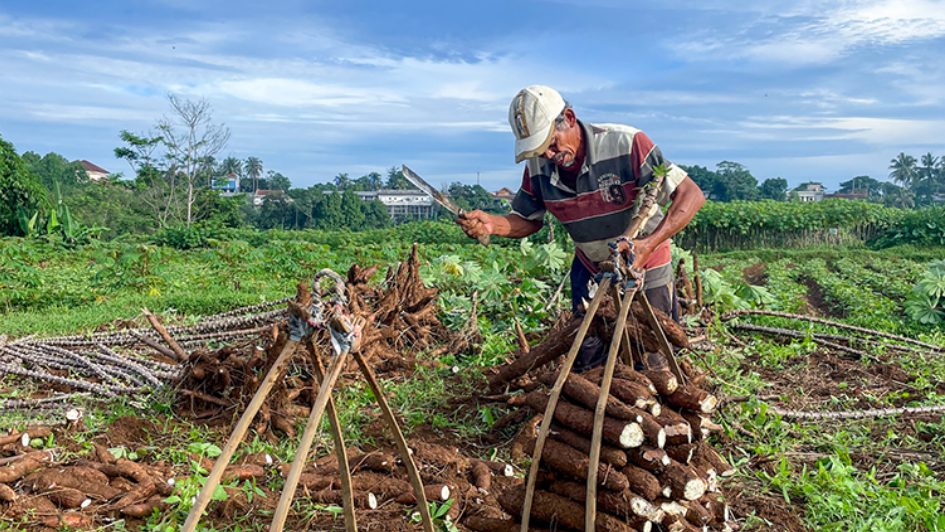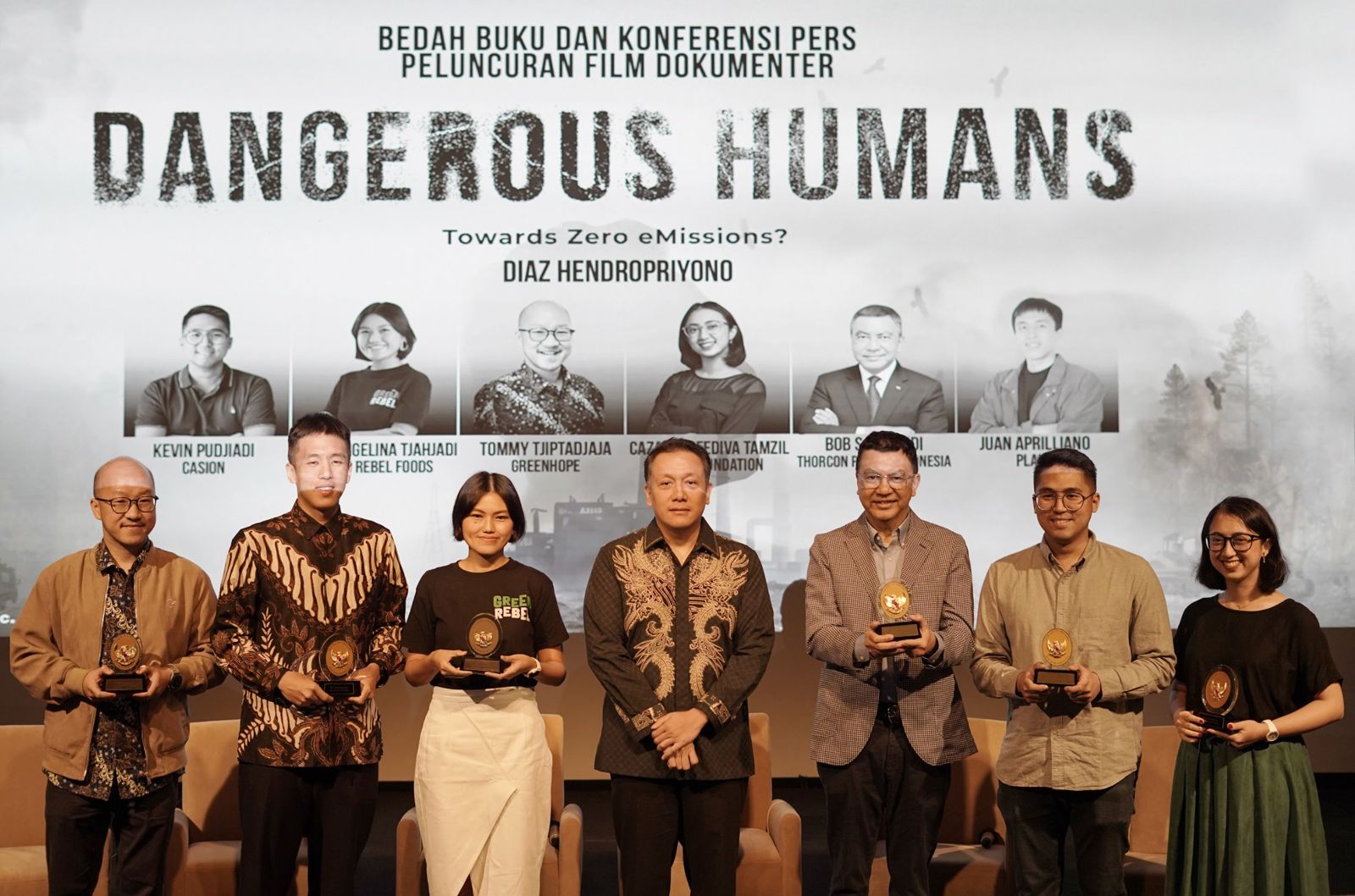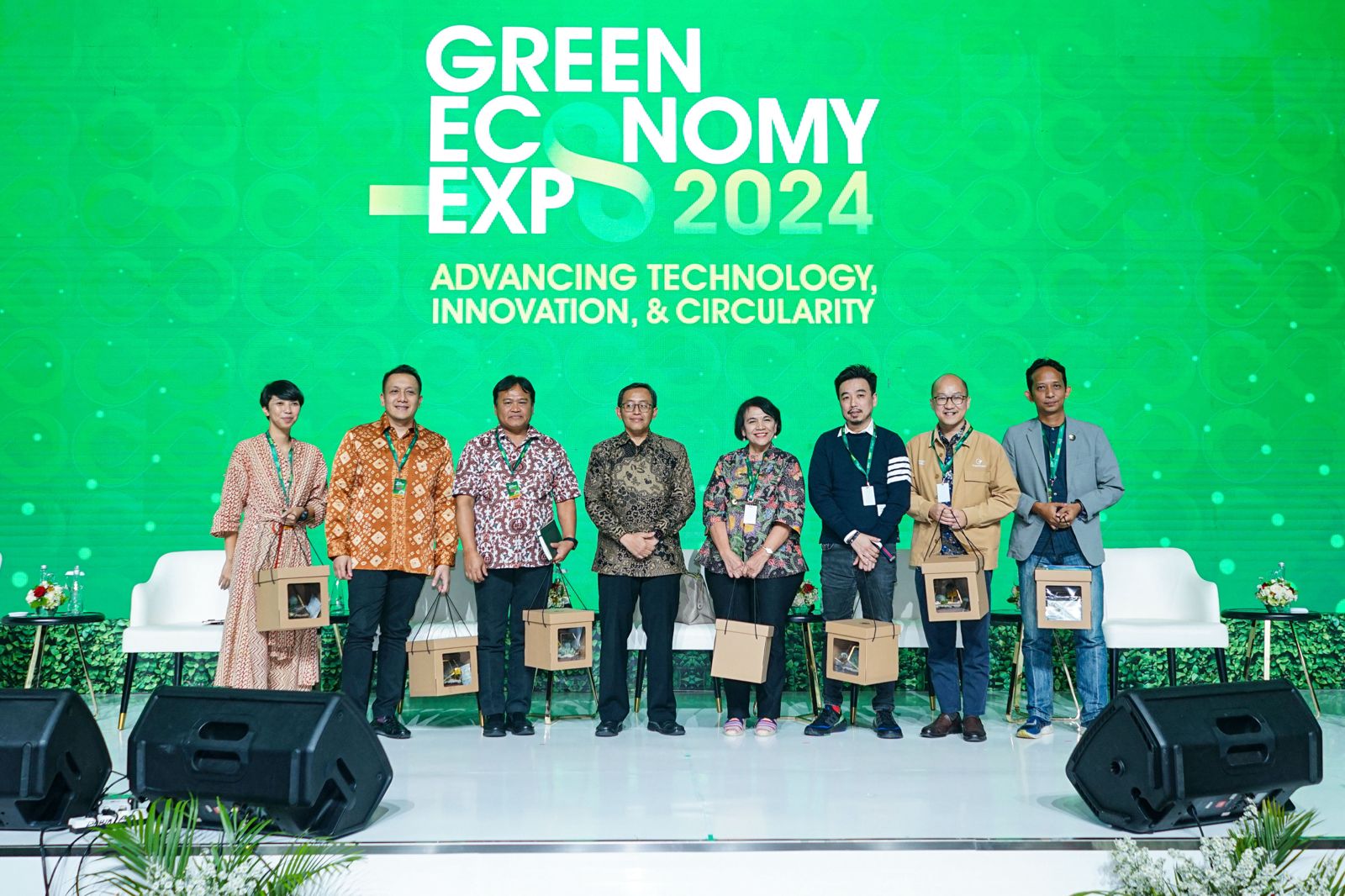Greenhope Recognized as a Case Study in the Global Innovation Index 2024 for Sustainable Plastic Solutions
Sunday, 29 September 2024
Greenhope (PT Harapan Interaksi Swadaya), a leader in sustainable packaging innovation, has been acknowledged as a case study in the Global Innovation Index (GII) 2024, published by the World Intellectual Property Organization (WIPO). The report, titled Unlocking the Promise of Social Entrepreneurship, highlights Greenhope’s innovative approach to creating biodegradable plastics and its significant contributions to addressing global environmental challenges.
Download the report here. Explore the social enterprise case studies here.
Greenhope's recognition in the GII 2024 underscores the company’s commitment to sustainable development and positions it at the forefront of social entrepreneurship, offering real solutions to environmental and social issues. The case study emphasizes Greenhope’s impact in the global movement to reduce plastic waste and promote eco-friendly alternatives.
Innovative Solutions for Plastic Waste
Since its establishment in 2017, following over a decade of research, Greenhope has established itself as a leader in developing biodegradable plastics. Its flagship product, Ecoplas, is a bio-based resin made from renewable cassava starch, sourced through fair trade farmer cooperatives. Ecoplas is patented in the U.S., Singapore, and Indonesia, and can be produced using existing plastic manufacturing machinery, making it an accessible and adaptable alternative for industries worldwide.
The GII case study highlights Greenhope's innovative biodegradable technologies, noting that the company’s materials emit 30% less greenhouse gases compared to conventional plastics and can degrade within 7 to 12 months in landfills and natural environments. With global plastic production estimated at 460 million tons per year, Greenhope’s technology provides a viable solution for mitigating environmental harm.
Global Impact and Reach
Greenhope’s products now serve clients in 15 countries. The company collaborates with over 150 plastic converters, brands, and retailers worldwide, assisting them in replacing traditional plastics with biodegradable alternatives. To date, Greenhope's products have replaced over 150,000 tons of conventional plastic, equivalent to 12.7 billion plastic bags.
According to the GII 2024 report, this impact reflects not only Greenhope's technological advancements but also its commitment to social responsibility. By sourcing cassava starch from farmer cooperatives under fair trade schemes, Greenhope is driving economic empowerment in rural communities, aligning its business practices with broader sustainable development goals.
Social Entrepreneurship at the Core
WIPO’s report highlights Greenhope’s unique position as a social enterprise that combines profitability with positive environmental and social outcomes. Unlike many companies in the plastics industry, Greenhope integrates its mission into every aspect of its business, from patented innovations to collaborations with local and global partners.
Greenhope's co-founders, Sugianto Tandio and Tommy Tjiptadjaja, bring complementary expertise—Tandio's deep knowledge of packaging and plastic manufacturing, paired with Tjiptadjaja's experience in corporate strategy and management consulting—enabling the company to navigate the complexities of scaling a sustainable business.
As noted in the GII case study, Greenhope’s success is built on a holistic approach to plastic packaging. Instead of positioning biodegradable plastics as the sole solution, Greenhope recognizes that the future of packaging lies in collaborative efforts encompassing reduction, reuse, recycling, and the adoption of next-generation materials.
"We understand that no single solution will solve the plastic crisis," said Tommy Tjiptadjaja, co-founder of Greenhope. "We believe that biodegradable plastics like Ecoplas are a crucial part of the solution, but we also advocate for reduction, reuse, and recycling. The key is finding the right applications for each technology."
Building a Sustainable Ecosystem
The GII report also highlights Greenhope’s efforts to foster innovation beyond its own operations. The company collaborates with educational and research institutions, NGOs, local and national governments, and international organizations like UNDP and the World Economic Forum (WEF) to drive systemic change in the plastic packaging industry.
This collaborative approach has helped Greenhope attract top talent and build a sustainable ecosystem around its mission. By investing in alliances with like-minded organizations, the company plays a critical role in advancing not only its own technology but also broader sustainability goals.
Recognition from Global Innovation Leaders
Being featured in the Global Innovation Index 2024 solidifies Greenhope's reputation as a credible and visionary company in the sustainable packaging sector. The report positions Greenhope among the world's leading innovators, particularly in social entrepreneurship, focusing on driving economic value while creating positive societal and environmental impact.
As Greenhope continues to grow, its commitment to scaling sustainable alternatives to plastic remains unwavering. With the increasing global demand for eco-friendly packaging solutions, Greenhope is well-positioned to lead the charge in providing biodegradable alternatives that align with both corporate and environmental goals.
Looking Ahead
Greenhope’s recognition in the Global Innovation Index 2024 is a testament to its innovative efforts in addressing one of the most pressing environmental challenges of our time—plastic waste. As the world moves toward a greener and more sustainable future, Greenhope's technology and social enterprise model offer scalable solutions for industries seeking to reduce their environmental footprint without compromising performance.
By continuing to innovate, collaborate, and expand its global reach, Greenhope is proving that a world without harmful plastics is not just a distant dream—it’s a reality within reach.
This activity is also part of the Fair For Life (FFL) certification activity between Greenhope and the Setia Farmers Group.


